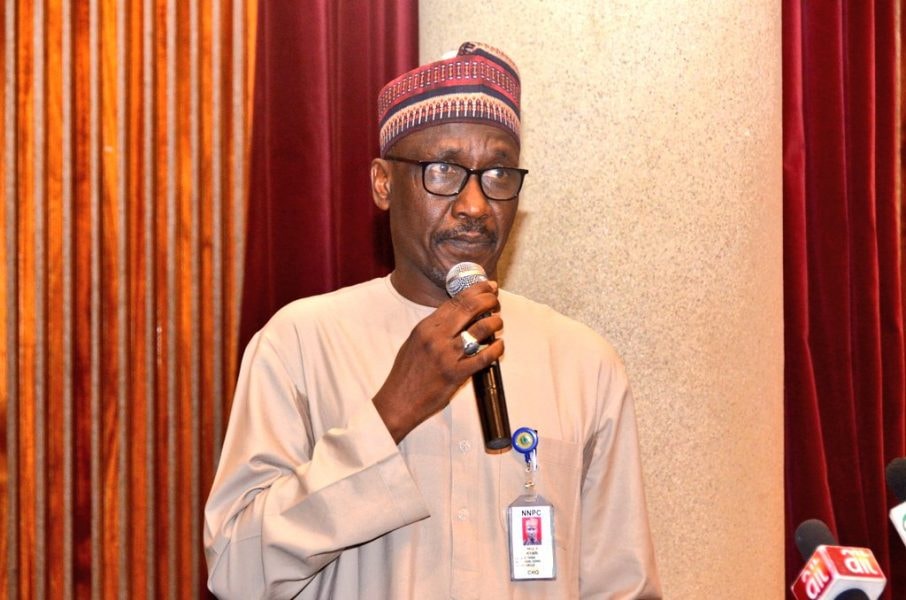- Buhari Appoints Kyari NNPC GMD, as Baru Retires
President Muhammadu Buhari on Thursday appointed Mr Mele Kolo Kyari as the new Group Managing Director of the Nigerian National Petroleum Corporation, as the oil firm announced that the appointment would take effect from July 8, 2019.
According to the corporation, Kyari will take over from the current GMD of NNPC, Maikanti Baru, who is to retire statutorily on July 7, 2019, at the age of 60.
This came as the Organisation of Petroleum Exporting Countries and the Nigeria Extractive Industries Transparency Initiative commended the government for appointing Kyari, congratulated the new NNPC boss and called for more reforms at the corporation.
NNPC’s Group General Manager, Group Public Affairs, Ndu Ughamadu, said the new GMD, was until his new appointment the corporation’s Group General Manager, Crude Oil Marketing Division.
The oil firm also announced the appointment of six Chief Operating Officers and a Chief Financial Officer.
It further stated that Kyari doubled, since May 13, 2018, as Nigeria’s National Representative to the Organisation of the Petroleum Exporting Countries.
Ughamadu said the NNPC new boss would be bringing to his new appointment, more than 27 years of experience in the various value chains of the petroleum industry.
On the other new appointees, he stated that Mr Roland Onoriode Ewubare, who hails from the South-South region of the country and was appointed Chief Operating Officer, Upstream, was until his new appointment Group General Manager, National Petroleum Investments and Management Services, a corporate services unit of the corporation.
Before his NAPIMS’ appointment, Ewubare was Managing Director of the Integrated Data Services Limited, a seismic data acquisition company of NNPC based in Benin.
The oil firm stated that Mustapha Yinusa Yakubu hails from the North Central region of Nigeria and is newly appointed as Chief Operating Officer, Refining and Petrochemicals.
Until his new appointment he was the Managing Director of National Engineering and Technical Company Limited.
Yusuf Usman hails from the North-East and is Chief Operating Officer, Gas and Power. Until his new appointment, Usman was Senior Technical Assistant to the Group Managing Director of the corporation.
Lawrencia Nwadiabuwa Ndupu, from the South-East, is newly appointed as Chief Operating Officer, Ventures. She, until her new appointment was the Group General Manager, NNPC Oil Field Services, established to provide technical services to players in the industry.
Umar Isa Ajiya, from the North-West region, who holds the new position of the Chief Financial Officer, was until his recent appointment, the Managing Director of Petroleum Products Marketing Company of NNPC, a downstream arm of the corporation.
Prior to holding the position as the Managing Director of PPMC, he was the corporation’s Group General Manager, Corporate Planning and Strategy.
Adeyemi Adetunji, who is from the South-West region, holding the new appointment of Chief Operating Officer, Downstream, was until his new appointment the Managing Director of NNPC Retail Limited, a downstream marketing company of NNPC.
Prior to his position as the MD of the downstream marketing company, he was General Manager, Transformation Department, a think-tank unit of the corporation.
Farouk Garba Said, who hails from the North-West and holds the new position of Chief Operating Officer, Corporate Services, was Group General Manager, Engineering and Technology Division of NNPC.
Said would be taking over from the present occupier of the office who retires statutorily on June 28, 2019.

 Forex2 weeks ago
Forex2 weeks ago


 Naira2 weeks ago
Naira2 weeks ago
 Naira4 weeks ago
Naira4 weeks ago
 Company News4 weeks ago
Company News4 weeks ago
 Billionaire Watch1 week ago
Billionaire Watch1 week ago




 Naira2 weeks ago
Naira2 weeks ago




 Naira3 weeks ago
Naira3 weeks ago




 Naira1 week ago
Naira1 week ago
















